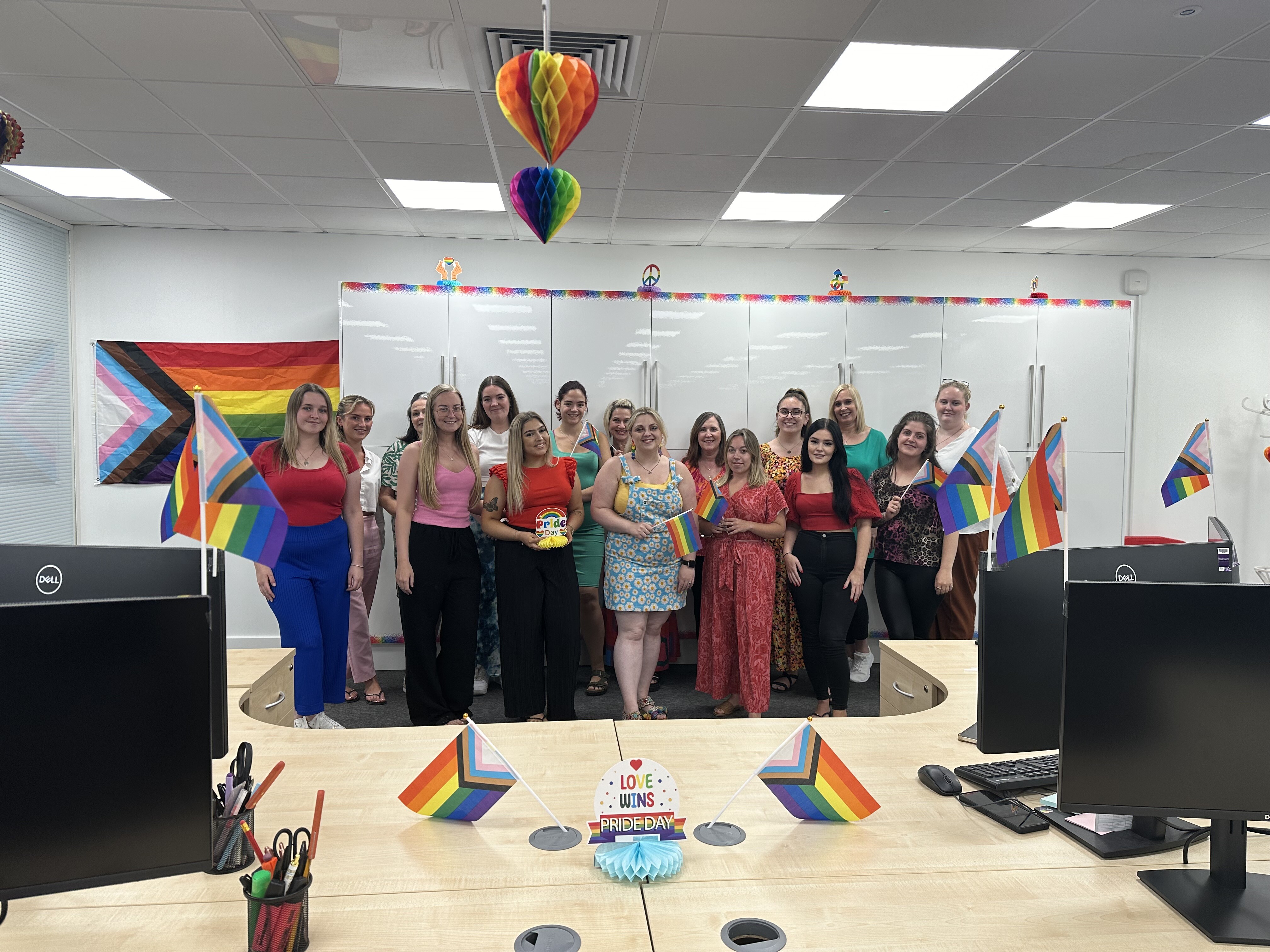International Women's Day 2023: Interview with WCS Group’s Frankie Cooke
.jpg?width=245&height=343&name=F%20Cooke%20(1).jpg) Frankie Cooke is a Service Delivery Manager for the North East at WCS Group, and just recently celebrated 20 years’ at the company.
Frankie Cooke is a Service Delivery Manager for the North East at WCS Group, and just recently celebrated 20 years’ at the company.
We spoke to Frankie about her journey in the water industry, starting as a Risk Assessor to her current role heading up the North East region. She shares her passion for the industry and what it’s like to be a woman in a male-dominated field. She also highlights the need for more diversity in the industry and shares her thoughts on how we can encourage more women to pursue careers in water.
How long have you been at WCS Group?
I started at H2O Chemicals, a predecessor of WCS Group, back in 2002 as a Risk Assessor. I worked out in the field conducting Legionella Risk Assessments of buildings and cooling towers. When my manager, who was also female, went on maternity leave I stepped up and began working in water hygiene and water treatment, initially to cover for her, but as the region grew I took on more of this work. After about 10 years, with the region continuing to grow and evolve, I stepped into a new role as an Operations Supervisor for the North East. The Operations team has since evolved into the Service Delivery team and I’m now Service Delivery Manager for the North East region.
What does your role as Service Delivery Manager involve?
I manage a team of four Field Managers and each of them has a team of between 8 and 13, so a lot of the work we do day-to-day is supporting the teams on the ground. I’m predominantly office based, though I do still occasionally get out into the field. Within the North there are three other Service Delivery Managers (SDMs) and I work a lot with them. I also work closely with the Regional Sales Manager and the support team in Gloucester. I also get involved with Health and Safety and investigating incidents, dealing with complaints, and reporting.
What led you to a career in water?
I did a degree in Biochemistry and my thesis was on filtering dye-house waste water to enable reuse and recycling. I then did a Masters at Cranfield University in the Water Sciences Department, looking at water pollution control and technology. The water industry chimed in with a lot of things I enjoyed from my biochemistry degree and it seemed like something new and different as I didn’t know anybody else in the industry. There was the environmental aspect to it too, so it ticked a lot of boxes. I worked for another water treatment company for a year, working in wastewater, and then transitioned over to Legionella Risk Assessments when I joined H2O Chemicals, which of course became WCS Group.
What do you like most about working in the water industry?
There’s a lot of variety as there’s so many aspects to it, from wastewater to clean water and so on. We’re predominantly in the Legionella industry, so there’s an element of keeping people safe too. Legionnaires’ disease can be fatal and there have been a number of preventable outbreaks over the years. There’s career longevity as well, as water hygiene and treatment are critical services for companies.
%20(1).jpg?width=1200&height=600&name=My%20project-1%20(86)%20(1).jpg)
What challenges have you faced in the industry?
There have been challenges with it being a male-dominated industry, and trying to break through the idea of women working in the office and men out on the ground. There can be other challenges too. The boiler houses are fabulous in the winter, but don’t make for such comfortable working conditions in the summer!
How has the industry changed over time?
When I first started at WCS Group myself and my manager were the only women working out in the field. There were more women working in admin roles. At the time there were about 60 people in the business. We’ve got more women in field and management roles now. In my own team we’ve got three women out on the ground. I would like it to be more than that and am working hard to build a diverse team. But the pool of female candidates applying for the role is still quite small. We’ve come a long way in terms of getting more women into the industry, but I think there’s a still a long way to go.
How can we get more women into the water industry?
We need to get away from talking to school children at a young age about gender-specific roles and use language that is for everybody regardless of gender or background or any other differences. We need to teach them that if you want to do something, whatever it is, then you can do it and be successful.
There’s more to change within the industry too. We’re trying to move away from some of the old language used, like ‘manpower’, but it’s much better than it used to be. I think we can do more to promote that women work in the industry too, like having pictures of diverse teams on company websites. Ultimately, we need to get more women applying for the roles in the first place as this is a great industry to work in!
Interested in a career at WCS Group? Take a look at our current vacancies.
Topics: Company


-1.png)

